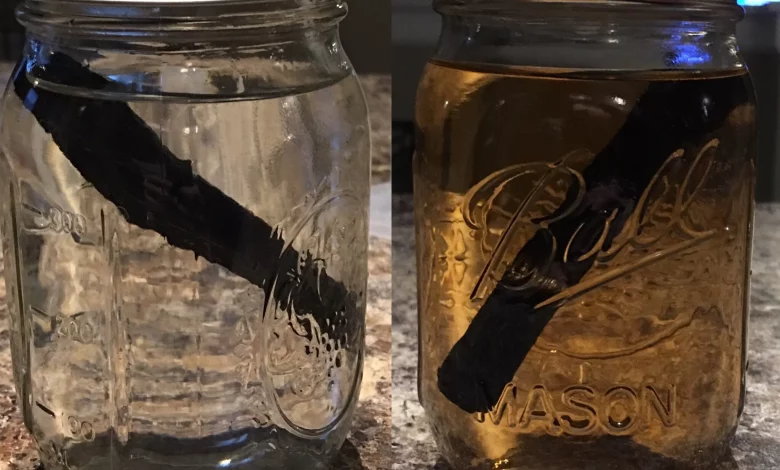Is It Safe To Drink Moonshine?

Moonshine is a term used to describe illicitly distilled alcoholic beverages, often made in rural areas outside of the official regulatory framework. It typically refers to homemade whiskey or other spirits that are produced without a license and outside of government regulations.
The term originated in the United States during the prohibition era, when the sale and consumption of alcohol were illegal. Moonshine became popular as a way for people to produce and consume alcohol without being caught by law enforcement. It was often made in hidden, makeshift stills in remote areas such as the Appalachian Mountains, and then distributed through underground networks.
Moonshine can be made from a variety of ingredients, including grains, fruit, and even sugar. The process involves fermenting the raw materials to produce a “wash,” which is then distilled to extract the alcohol. Moonshine is produced and consumed in some parts of the world. It is often associated with rural culture and traditions, and can be found at illegal distilleries, underground markets, and even some music festivals.
How is Moonshine Made?
Moonshine is typically produced by fermenting a mixture of grains, fruits, or vegetables with yeast and water to create a high-alcohol content liquid. This liquid is then distilled to remove impurities and increase the alcohol concentration. The distillation process involves heating the fermented mixture to vaporize the alcohol, which is then cooled and collected as a liquid. The resulting product can contain up to 190 proof alcohol, which is much higher than the alcohol content of commercially available spirits like whiskey or vodka.
Moonshine is often produced in homemade stills that are made from materials like copper or stainless steel. These stills can range in size from small, countertop models to large, industrial-scale setups. However, the production of moonshine is illegal in many jurisdictions, as it often involves the use of unlicensed equipment and the production of alcohol without proper permits.
Is Moonshine Legal?
The legality of moonshine varies depending on the country and jurisdiction. In many parts of the world, including the United States, the production and sale of moonshine is illegal if it is not done with a proper license and outside of government regulations.
In some countries, such as parts of Europe and South America, the production and sale of small quantities of homemade spirits for personal consumption is legal. However, even in these cases, there may be regulations and restrictions in place to ensure the safety and quality of the products.
Is It Safe To Drink Moonshine?
No, consuming illicitly produced alcohol like moonshine can be extremely dangerous. Moonshine may contain impurities and contaminants that can cause illness or even death. Therefore, it is generally recommended that people consume only legally produced and regulated alcoholic beverages.
However, the production and sale of moonshine remain a serious public health concern, as it is often produced and distributed without adequate quality control measures. This can lead to the consumption of tainted or contaminated products that can cause serious harm to those who consume them.
In recent years, efforts have been made to crack down on illegal moonshine production and distribution, particularly in areas where it remains prevalent. These efforts have included increased law enforcement activity, public awareness campaigns, and initiatives to encourage the production and sale of legal, regulated alcoholic beverages.
Dangers Of Drinking Moonshine
Drinking moonshine, or any other illicitly produced alcohol, can be extremely dangerous. Here are 10 potential dangers of drinking moonshine:
1. Methanol poisoning: Methanol is a toxic substance that is sometimes found in moonshine. Methanol poisoning can cause a variety of symptoms, including dizziness, nausea, headache, and confusion. In severe cases, methanol poisoning can cause blindness and even death. Methanol is a byproduct of the fermentation process used to make moonshine, and if it is not properly removed during the distillation process, it can end up in the final product.
2. Ethanol poisoning: Moonshine is often made with a high alcohol content, which can lead to alcohol poisoning if consumed in large quantities. Symptoms of alcohol poisoning can include confusion, vomiting, seizures, and even coma. In severe cases, alcohol poisoning can be life-threatening.
3. Contaminants: Illicitly produced moonshine may contain harmful contaminants, such as lead. Lead poisoning can cause a variety of symptoms, including abdominal pain, headaches, and fatigue. In severe cases, lead poisoning can cause kidney damage, seizures, and even death.
4. Lack of quality control: Moonshine is often produced without proper quality control measures, which can result in inconsistent and unsafe products. Without proper quality control, there is no way to ensure that the moonshine is safe to consume.
5. Fire hazard: The process of making moonshine involves heating flammable liquids in makeshift stills. This can create a significant fire hazard, as the vapors produced during the distillation process can ignite and cause an explosion. In addition, the stills themselves can be dangerous if they are not properly constructed and maintained.
6. Infection risk: Moonshine production often takes place in unsanitary conditions, which can increase the risk of infection from harmful bacteria or other pathogens. The use of dirty equipment or contaminated water can lead to the growth of bacteria that can cause illness if ingested.
7. Legal repercussions: Producing or distributing moonshine is illegal in many jurisdictions, and those who are caught may face criminal charges and other legal consequences. Depending on the severity of the offense, individuals involved in the production or distribution of moonshine may face fines, jail time, or both.
8. Addiction: Moonshine, like other alcoholic beverages, can be addictive and lead to long-term health problems, as well as social and economic consequences. Alcohol addiction can cause a variety of health problems, including liver disease, pancreatitis, and increased risk of cancer.
9. Risk of violence: The illicit production and distribution of moonshine may be associated with criminal activity and violence. Individuals involved in the production or distribution of moonshine may be at risk of violence from rival groups or law enforcement.
10. Financial loss: Consumers who purchase moonshine may be at risk of financial loss, as they may be sold fake or inferior products. Illicitly produced moonshine may be diluted or cut with other substances to increase profits, which can lead to inferior products that are unsafe to consume. Additionally, consumers who purchase moonshine may be at risk of legal consequences if they are caught with illegal alcohol.
Does Moonshine Interact With Medication?
Yes, moonshine can interact with certain medications. When alcohol is consumed, it can increase the effects of some medications, while decreasing the effects of others. For example, moonshine can increase the sedative effects of medications like benzodiazepines or barbiturates, which can lead to excessive drowsiness or even respiratory depression. It can also increase the risk of liver damage or liver toxicity when taken with medications like acetaminophen or other drugs that are metabolized by the liver.
Additionally, moonshine can interact with medications used to treat diabetes, as it can cause a drop in blood sugar levels when consumed in large amounts. It can also interfere with the absorption of certain antibiotics and make them less effective.
It is important to speak with a healthcare provider before consuming moonshine or any other alcoholic beverage if you are taking prescription medications. They can advise you on any potential interactions and provide guidance on safe levels of alcohol consumption. It is generally recommended to avoid consuming alcohol when taking medication, particularly if you are unsure about the potential risks.





